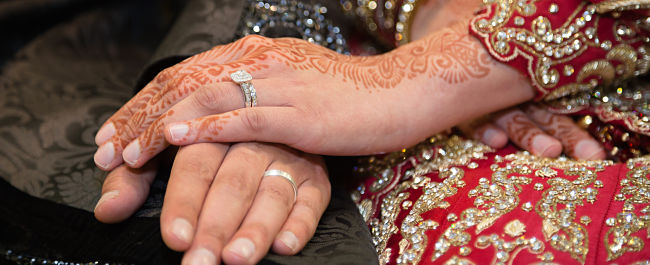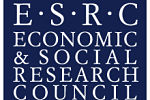Marriage and Migration: facilitating the integration of migrant spouses

Integration interventions for migrant spouses should take account of gender, life stage, family and work commitments.
About the research
Spouses constitute one of the largest categories of migrant settlement in the UK. Concern is sometimes expressed over the implications for integration of marriage-related migration. In some ethnic minority groups, significant numbers of children and grandchildren of former immigrants continue to marry partners from their ancestral homelands. Such marriages have been represented as particularly problematic, a ‘first generation’ of spouses in every generation inhibiting processes of individual and group integration, socio-economic participation and cultural change. Recent restrictions on marriage-related immigration to the UK have been justified on the grounds of promoting integration, echoing policy developments elsewhere in Europe.
Evidence on the relationships between marriage migration and processes of integration is, however, surprisingly limited. The Marriage Migration and Integration research project focuses on two major British ethnic minority groups involved in such transnational marriages: Pakistani Muslims and Indian Sikhs. This research offers new insights, providing much needed new grounding for policy and practice in the public, private and voluntary sectors.
Policy implications
Sensitivity is needed to avoid policies and discourse on marriage-related immigration being viewed as unjust and targeted towards particular communities, as perceived discrimination is a barrier to integration.
Information and signposting is needed for arriving spouses. Receiving families should not be relied on to fulfil this role alone, as their resources and expectations vary.
Services should also meet the needs of migrant husbands, which often differ from those of migrant wives.
Access to student finance would allow migrant spouses to convert qualifications or re-train, reducing waste of valuable educational capital.
Integration interventions should take account of the changing pressures and responsibilities affecting men and women at different stages of life and of migration:
- Pre-migration: practical information could be offered with language training.
- Arrival: an important window of opportunity for provision of information, training and opportunities, before migrants find work and/or have children.
- Child rearing: services could be offered through community groups, schools and workplaces, taking account of time pressures on families.
- Later in life: initial patterns of integration are not fixed, with room for initiatives targeting later life stages.
Key findings
This research shows that migrant spouses face challenges, but also calls into question some common assumptions about relationships between South Asian transnational marriage and the varied processes of integration. These processes are patterned by gender and ethnicity, and influenced by individual and family characteristics, but also by the opportunities and constraints of the social environment, labour market, service provision and policy frameworks.
- Spouses from India and Pakistan face similar challenges to other migrants. Their marital connections to long-term British residents are an important potential advantage, but families’ resources and expectations vary. • Among both migrant and non-migrant spouses, patterns of engagement in the various domains of integration vary significantly across stages of life.
- Challenges faced by migrant husbands are less widely recognised than those affecting migrant wives, forming a gap in service provision.
- Some migrant spouses are highly educated, but qualifications may not be recognised in the UK labour market.
- Experiences of inequality, or simply being treated as an ethnic or foreign ‘other’, have negative impacts on integration. Both migrant and non-migrant spouses from these backgrounds would benefit from measures to tackle negative stereotypes and discrimination.
For further information and to download the full report: http://www.bristol.ac.uk/ethnicity/projects/mmi/
Policy Briefing 25: 2016
Marriage and Migration: facilitating the integration of migrant spouses (PDF, 173kB)
Contact the researchers
Dr Katharine Charsley, Reader in Sociology, SPAIS, University of Bristol
katharine.charsley@bristol.ac.uk
Dr Marta Bolognani, Research Associate, SPAIS, University of Bristol
m.bolognani@bristol.ac.uk
Dr Sarah Spencer CBE, Director of the Global Exchange on Migration and Diversity, and Senior Fellow, COMPAS, University of Oxford
sarah.spencer@compas.ox.ac.uk
Dr Hiranthi Jayaweera, Research Affiliate, COMPAS, University of Oxford
hiranthi.jayaweera@compas.ox.ac.uk
Dr Evelyn Ersanilli, Assistant Professor in Sociology, Vrije Universiteit Amsterdam
e.f.ersanilli@vu.nl
Authors
Dr Katharine Charsley, Dr Marta Bolognani, University of Bristol; Dr Sarah Spencer, Dr Hiranthi Jayaweera, Univeristy of Oxford; Dr Evelyn Ersanilli, Vrije Universiteit Amsterdam

